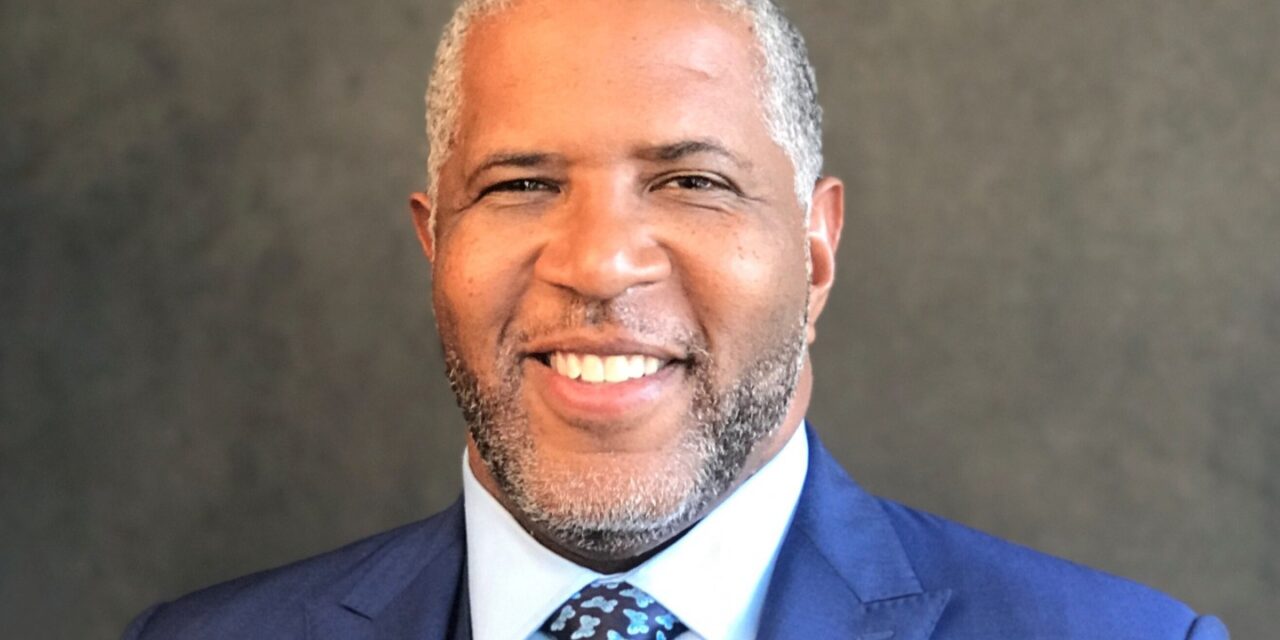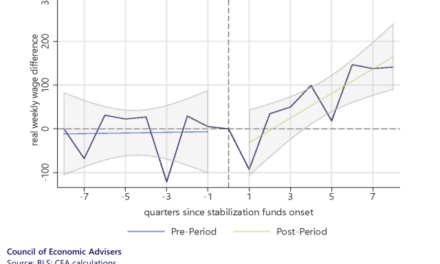There’s an old joke in private equity: 60 is the new 30. At least that’s how it’s long played out on Wall Street. Indeed, this powerful corner of the finance world was for decades dominated by the founders who practically invented the field—then hung on atop their companies for as long as they possibly could. Finally, that’s changing—or at least starting to. There is not only a crop of new leaders at the biggest firms, there’s a wave of smaller shops finding their place in the power structure.
And while the rise in interest rates and dropoff in deal flow has squeezed PE companies over the past year, the sector is still massive. Private equity, which refers to firms that use outside capital to invest in companies, controls nearly $8 trillion in assets globally, including $4.1 trillion in the U.S., according to data from Preqin. Private equity dry powder, which refers to capital available to invest, stood at $1.5 trillion in July, excluding venture capital, Preqin said.
Private equity firms are also big employers. Last year, 12 million people worked at companies owned by buyout shops, or at the PE firms themselves, earning $1 trillion in wages and benefits, according to a report from professional services firm EY that was prepared for the American Investment Council. (The AIC is a lobbying group for the private equity industry.) Some of the most well-known companies, including Airbnb, Uber, and Dunkin’, have been backed by private equity firms.
Since their launch in the 1970s and 1980s, many of the original private equity firms, which include KKR, Blackstone, and Carlyle Group, have expanded beyond PE, investing in credit, real estate and infrastructure. These founding firms typically no longer call themselves private equity but now use monikers like alternative asset manager (“alts”) or investment firm.
The aging founders of some of these original firms had for years refused to hand over the reins to the next generation. That changed over the past decade, with several buyout shops laying out their succession plans. Leadership changes, however, don’t always go smoothly and can sometimes lead to very public spats, as was the case at Apollo Global Management when founder Leon Black left the firm in 2021 after his ties to Jeffrey Epstein became public. This led to a power struggle at Apollo over who would replace him, Fortune reported, with the role ultimately going to Marc Rowan. (Apollo did not return calls or messages for comment.)
There’s also a group of younger firms that have achieved a level of success to rival the old guard. These leaders are well-known in the industry but still relatively unknown outside of it. To compile our list, Fortune reviewed the biggest PE investments and exits, and canvassed private equity executives to suss out which leaders are on the rise—and may eventually run one of these storied firms.
Robert F. Smith, founder, chairman and CEO of Vista Equity Partners
Courtesy of Vista Equity Partners
Robert F. Smith, 60, is one of the most powerful executives on Wall Street. His firm has over $100 billion in assets under management and has remained one of the most active buyout shops despite the slowdown in dealmaking. Vista invests in software companies; it has clinched three take-private acquisitions since Oct. 22, including Duck Creek Technologies, KnowBe4, and Avalara. The firm has also scored some big exits, like selling Apptio to IBM for $4.6 billion in June and Cvent to Blackstone for about $4.6 billion. Vista has generated $18 billion by selling stakes and holdings since Nov. 30, 2021, and has returned $14.3 billion to investors, according to a June statement.
Smith, a former Goldman Sachs tech banker, founded Vista in 2000. His wealth is estimated at $12 billion, according to Bloomberg. He placed 286th on Forbes‘s list of world’s billionaires this year and, in 2022, he ranked 86th on the Forbes 400 list of richest Americans. He is also known for his philanthropy: In 2019, Smith famously paid off $34 million in loans for 400 graduates of Morehouse College.
Jon Gray, president and chief operating officer, Blackstone
Courtesy of Blackstone
In July, Blackstone was the first alternative manager to surpass $1 trillion in assets under management, a milestone that was three years ahead of schedule, Fortune reported. BX, launched in 1985, is also the only one of the large public alt firms that has yet to finalize its succession. Jon Gray, Blackstone’s president and COO, is largely considered the heir apparent to CEO and Chairman Stephen Schwarzman.
Gray, 53, joined Blackstone in 1992 fresh out of the University of Pennsylvania, where he earned two degrees: a B.S. in economics from the Wharton School and a B.A. in English from the College of Arts and Sciences. He has spent his whole career at Blackstone, and served as its global head of real estate for 13 years. Gray is credited as the architect of Blackstone’s buy of Hilton Hotels for about $26 billion in 2007, clinched right before the onset of the global financial crisis. BX took Hilton public in December 2013. Blackstone’s profit on Hilton was $14 billion and is considered one of the best returns in industry.
Marc Rowan, cofounder and CEO, Apollo Global Management
Benjamin Girette—Bloomberg via Getty Images
One of the messiest handoffs in private equity history led Marc Rowan to assume leadership of Apollo Global in 2021. Rowan was behind some of the most profitable bets at Apollo, including insurer Athene, which the firm finished merging with in January 2022. Apollo’s shares have soared 66% since Rowan took charge in 2021. AUM at Apollo has increased by 31% to about $598 billion as of March 31.
Rowan, 60, is chair of the board of the UJA-Federation of New York, a leading local philanthropy. He is also a founding member and chair of Youth Renewal Fund, as well as vice chair of Darca, Israel’s top educational network.
Orlando Bravo, founder and managing partner of Thoma Bravo
Courtesy of Them Bravo
Thoma Bravo, the software-focused PE firm founded by Orlando Bravo, has been active during the current merger slowdown. In June, Thoma Bravo scored one of its biggest exits when it sold fintech Adenza to the Nasdaq for $10.5 billion in cash and stock. Thoma Bravo has acquired or invested in more than 440 software and technology firms in its more than 20-year history, with AUM for Thoma Bravo totaling more than $127 billion as of March 30. The PE firm in December raised $24.3 billion, the most ever, for its flagship Thoma Bravo Fund XV, according to a statement.
Bravo, 52, was born in Mayaguez, Puerto Rico. In October 2017, when Hurricane Maria destroyed Puerto Rico’s power grid, leaving the island without food and water for days, Bravo organized airlifts and shipments of food, water, and supplies to the island. He is the founder and chairman of the Bravo Family Foundation, which aims to provide access and opportunities to young adults in Puerto Rico.
Hadley Mullin, senior managing director, TSG Consumer Partners
Courtesy of TSG Consumer Partners
Launched in 1987, TSG is one of the first private equity firms to focus solely on the consumer sector. Investments currently include BrewDog craft beer, Dutch Bros coffee chain, and Duckhorn Wine Co. In January, TSG’s ninth fund raised $6 billion in commitments, up $2 billion from its prior pool. TSG has about $20 billion of assets under management.
Private equity has long bemoaned the lack of women in its senior ranks. That’s not an issue at TSG. Hadley Mullin, 48, joined the firm in 2004 and, in 2014, she was named a senior managing director. This made Mullin the No. 3 executive at the firm. Roughly one-third of TSG’s partners are female, while more than half of TSG’s 79 employees are women.
Harvey M. Schwartz, CEO, Carlyle Group
Courtesy of Carlyle Group
Founded in 1987, Carlyle’s businesses include global private equity (which includes PE, real estate, and infrastructure), as well as credit and investment solutions, which refers to fund-of-funds adviser AlpInvest. (Carlyle acquired AlpInvest in 2011.) The investment firm employs more than 2,200 professionals spread across 29 offices around the world. It had $381 billion in assets under management as of March 31, up 17% from a year ago.
In August 2022, drama at Carlyle kicked into high gear when then CEO Kewsong Lee abruptly quit. Carlyle spent several months searching for its next leader before picking Harvey M. Schwartz, a former Goldman Sachs president and co–chief operating officer, in February. While it’s too soon to gauge his progress, Schwartz, 59, has set out some goals for Carlyle. The exec wants to increase Carlyle’s capital markets business, which arranges loans for its portfolio companies, and made $50 million in fees last year, Schwartz said during a Bernstein investor conference in June. “It’s obviously something we can grow. I have a team focused on putting together a plan for that, but I think it’s kind of obvious whitespace,” Schwartz said, according to a transcript. He also wants to expand Carlyle’s reinsurance business. The firm owns a stake in Fortitude Re, a Bermuda reinsurer. Carlyle, under Schwartz, has also made changes. In July, the firm promoted Lúcia Soares to chief information officer and head of technology transformation. Carlyle also named John Redett, currently head of Carlyle’s global financial services, to be CFO and head of corporate strategy effective Oct. 1. Curt Buser, Carlyle’s current CFO, will retire at the end of the year.
Annie Lamont, cofounder and managing partner of Oak HC/FT
Courtesy of Oak HC/FT
No list of private equity power players would be complete without mention of Annie Lamont, 66, who helped launch Oak HC/FT in 2014. The venture and growth firm, which focuses on companies in healthcare and fintech, has $5.3 billion in AUM. In July 2022, Oak HC/FT raised $1.94 billion with its fifth flagship fund.
Oak HC/FT lists about 25 investments credited to Lamont. These include Aspire Health, which was sold to Anthem in 2018; health insurance startup Devoted Health; and VillageMD, a primary care provider. She is a former managing partner of VC firm Oak Investment Partners. Lastly, Lamont is the first lady of Connecticut: Her husband, Ned Lamont, was reelected governor of that state in 2022.
Jeffrey Perlman, president of Warburg Pincus
Courtesy of Warburg Pincus
Warburg, founded in 1966, is a growth investor known for its health care deals, but the firm also invests in sectors such as consumer, financial services, energy transition, technology, industrial, and real estate. With over $83 billion in AUM, the firm has been fundraising for its latest flagship fund, Warburg Pincus Global Growth 14. Marketing for the pool is expected to close soon and exceed its $16 billion target, Fortune has learned.
Warburg has a history of choosing its leaders without any drama. In 2002, John Vogelstein, a cofounder, picked Chip Kaye and Joe Landy to serve as Warburg’s co-CEOs. Landy stepped aside in 2019, leaving Kaye as sole chief executive. Last week, Kaye tapped Jeffrey Perlman, who leads Warburg’s investments in Southeast Asia and its real estate franchise across Asia-Pacific, to be Warburg’s next leader. Perlman, 40, was named president of Warburg, taking over for Timothy Geithner, who became chairman. (Geithner served as Secretary of the Treasury under President Barack Obama.) Kaye is staying put as Warburg’s CEO for now.
Martin Nesbitt, cofounder and co-CEO of the Vistria Group
Courtesy of The Vistria Group
Launched in 2013, the Vistria Group is a middle market private equity firm that invests in health care, knowledge and learning, as well as financial services. Vistria, with over $10 billion in AUM, is currently in the market for its fifth flagship fund that is targeting $4 billion, according to documents from the Connecticut Retirement Plans and Trust Funds. This year, Vistria has invested in U.S. Retirement & Benefits Partners, MGT Solutions and Really Great Reading.
Martin Nesbitt, 60, is a longtime friend of President Barack Obama, having served as national treasurer for both of his presidential campaigns. Before starting Vistria with Kip Kirkpatrick (who also helped launch Water Street Healthcare Partners), Nesbitt cofounded the Parking Spot, a provider of off-airport parking facilities, and served as its president and CEO from 1998 to 2012. (Parking Spot was sold to Green Courte Partners in December 2011.) Nesbitt was also previously an officer of the Pritzker Realty Group.
Margaret Anadu, senior partner of real estate at the Vistria Group
Courtesy of The Vistria Group
Margaret Anadu, 42, joined Vistria in July 2022 as a senior partner, where she heads up real estate investing. She spent nearly 19 years at Goldman Sachs, where she was the youngest black female to make partner at age 37 in 2018, Fortune reported. At Goldman, Anadu was global head of sustainability and impact for asset management, as well as chair of the urban investment group. GSUIG grew to over $2 billion of investments annually with Anadu at the helm. She was also chief architect of the One Million Black Women investment strategy at Goldman, which aims to invest $10 billion in Black women-owned businesses and nonprofits.
KKR co-chief executives Joseph Bae and Scott Nuttall
Courtesy of KKR
Succession at KKR has offered none of the drama that other firms have provided. In 1976, Jerome Kohlberg Jr., along with cousins Henry Kravis and George Roberts, founded KKR, making it one of the older private equity firms. Kohlberg left KKR in 1987, launched middle market firm Kohlberg & Co. and passed away in 2015. KKR has since evolved into one of the bigger alternative asset managers with 127 portfolio companies and about $510 billion in assets. KKR’s headcount numbers over 2,400 people, while its portfolio companies employ more than 800,000 people. KKR’s AUM stood at about $510 billion as of March 31.
More than 40 years after its founding, KKR set out its leadership in 2017, when it named Joseph Bae, now 51, and Scott Nuttall, 50, as co-presidents. The duo took charge as KKR co-CEOs in October 2021. Kravis and Roberts, both 79, have stayed on as co-executive chairmen but are giving up voting control of the firm they founded. By the end of 2026, KKR will eliminate preferred shares for Kravis and Roberts, putting it in line with other firms like Apollo.
Collin Roche and Dean Mihas, co-CEOs and managing directors of GTCR
GTCR, founded in 1980, is a middle market buyout shop, known for its investments in financial services, healthcare, technology, and consumer services. With every fund, GTCR has gotten larger. That momentum gained a big push in 2019 when the firm named Collin Roche, 52, and Dean Mihas, 56, as its co-CEOs. In 2020, GTCR collected $7.9 billion with its 13th flagship fund, a 50% jump over its prior pool. This year, GTCR topped that mark when GTCR Fund XIV came in at $11.5 billion, its biggest fund ever.
Earlier this month, GTCR unveiled plans to buy a majority stake in Worldpay. Fidelity National Information Services, or FIS, acquired WorldPay in 2019 and had planned to spin off the underperforming unit. On July 6, GTCR swooped in and agreed to buy 55% of WorldPay for $11.7 billion, its biggest deal ever and one of the largest U.S. PE transactions this year. Other GTCR deals this year include the sale of Paya, a payments provider, to Nuvei Corp for about $1.3 billion. AUM for GTCR was more than $35 billion.
William Ford, chairman and CEO of General Atlantic
Courtesy of General Atlantic
Founded in 1980, General Atlantic is one of the original growth equity firms that has evolved into a global investment manager. GA typically takes minority stakes in companies and has made over 500 investments in businesses such as ByteDance, parent of TikTok; edtech company Duolingo; and fintech Chime.
William Ford, 62, isn’t a newcomer to private equity. The executive joined GA in 1991 and became CEO in 2007. Under Ford’s leadership, GA has become one of the bigger growth firms with roughly $77 billion in AUM. Armed with $15 billion to invest in deals, GA is expanding into buyouts and credit.
Jose E. Feliciano, managing partner and co-founder Clearlake Capital Group
Clearlake Capital Group
Jose E. Feliciano, 50, is a former Goldman M&A banker who helped launch Clearlake Capital in 2006. The PE firm, which invests in the technology, industrial and consumer sector, has over $70 billion in AUM.
Clearlake gained notice last year when, along with businessman Todd Boehly, it bought the Chelsea Football Club. So far this year, the PE firm has completed the sales of Archer Technologies to Cinven and a majority stake in FloWorks International to Wynnchurch Capital. It has also closed 13 add-on transactions. Clearlake is currently investing from its seventh flagship private equity fund, which raised more than $14.1 billion in May 2022.
Jon Winkelreid, chief executive and director, TPG
Courtesy of TPG
TPG’s succession has also been rather dull. Founded in 1992 by David Bonderman and Jim Coulter, TPG is known for its buys of well-known companies like Continental Airlines, Neiman Marcus and J. Crew Group. The firm, like its rivals, has branched out beyond private equity to growth, impact and real estate investing. Earlier this year, it agreed to buy credit and real estate investment firm Angelo Gordon for about $2.7 billion. TPG became the latest of the large alternative asset managers to go public when its shares began trading on the Nasdaq in January 2022. While its market capitalization is more than $9 billion, TPG’s AUM is much bigger at $137 billion.
TPG was one of the first to lay out its succession plan when Jon Winkelreid joined in 2015 as co-CEO with cofounder Jim Coulter. (Bonderman continued in his role as co-founder and chairman of TPG.) Winkelreid, 63, was already known on Wall Street, having spent more than 27 years at Goldman Sachs where he was considered a potential successor to then CEO, Lloyd Blankfein, Fortune reported in 2012. He retired in 2009 as Goldman’s president and co-chief operating officer. In 2021, Winkelreid was named TPG’s sole-CEO when Coulter became executive chairman.
John Connaughton and Jonathan Lavine, co-managing partners of Bain Capital
Courtesy of Bain Capital
Bain Capital can trace its roots to management consulting firm Bain & Co. In 1984, partners of Bain & Co, including Mitt Romney, launched the PE firm known as Bain Capital. In fact, much of Bain Capital’s first fund came from Bain & Co, the New York Times reported in December 2011. Like many of the large alt managers, Bain has expanded beyond private equity and now invests in venture capital, public equity, fixed income, credit, and real estate. It has about $175 billion in AUM as of March 31.
In 2016, Bain Capital set out its leadership, when John Connaughton and Jonathan Lavine, 57, were named co-managing partners, Fortune reported at the time. Longtime partners Josh Bekenstein and Steve Pagliuca became co-chairman. Connaughton, 57, is the global head of Bain’s buyout arm which has invested in 1,150 companies. Lavine is the chief investment officer of Bain’s credit unit, the former Sankaty Advisors, as well as Bain’s special situations business.
Ramzi Musallam, CEO and managing partner of Veritas Capital
Courtesy of Veritas Capital
Veritas is a tech investor that targets companies in government-related industries like health care, education, and national security. While the deal market may be slow, Veritas, along with Elliott Investment Management and Patient Square Capital, agreed to buy Syneos Health for $7.1 billion in May. The firm is currently investing out of its eighth flagship fund, Veritas Capital Fund VIII, which raised $10.65 billion of committed capital in October.
Ramzi Musallam, 54, joined Veritas in 1997. In 2012, Musallam was the firm’s second-highest ranking executive when Robert McKeon, who founded Vista and was its chairman, took his own life. McKeon’s passing triggered key man issues, meaning Veritas investors could legally walk away. Musallam convinced investors to stick with Veritas, which then had $2 billion in AUM. That turned out to be a good bet. Roughly 10 years later, Veritas has about $45 billion of AUM.
Steve Klinsky, founder and CEO of New Mountain Capital
Courtesy of New Mountain
Like many firms, New Mountain doesn’t just invest in private equity but also targets credit and net lease financing in real estate. The firm typically focuses on sectors such as consumer, software, health care, and fintech. New Mountain is currently fundraising for its latest flagship fund and seeking $12 billion, Buyouts reported in March. In 2021, the firm’s sixth pool raised $9.6 billion.
Klinsky, 67, is a former Goldman Sachs partner who cofounded the leverage buyout group at GS in 1981. In 1984, he joined Forstmann Little and Co, one of the biggest buyout firms of the 1990s. He was a general partner at Forstmann from 1986 to 1999. That year, in 1999, Klinsky founded New Mountain and the firm now has more than $40 billion in AUM.






